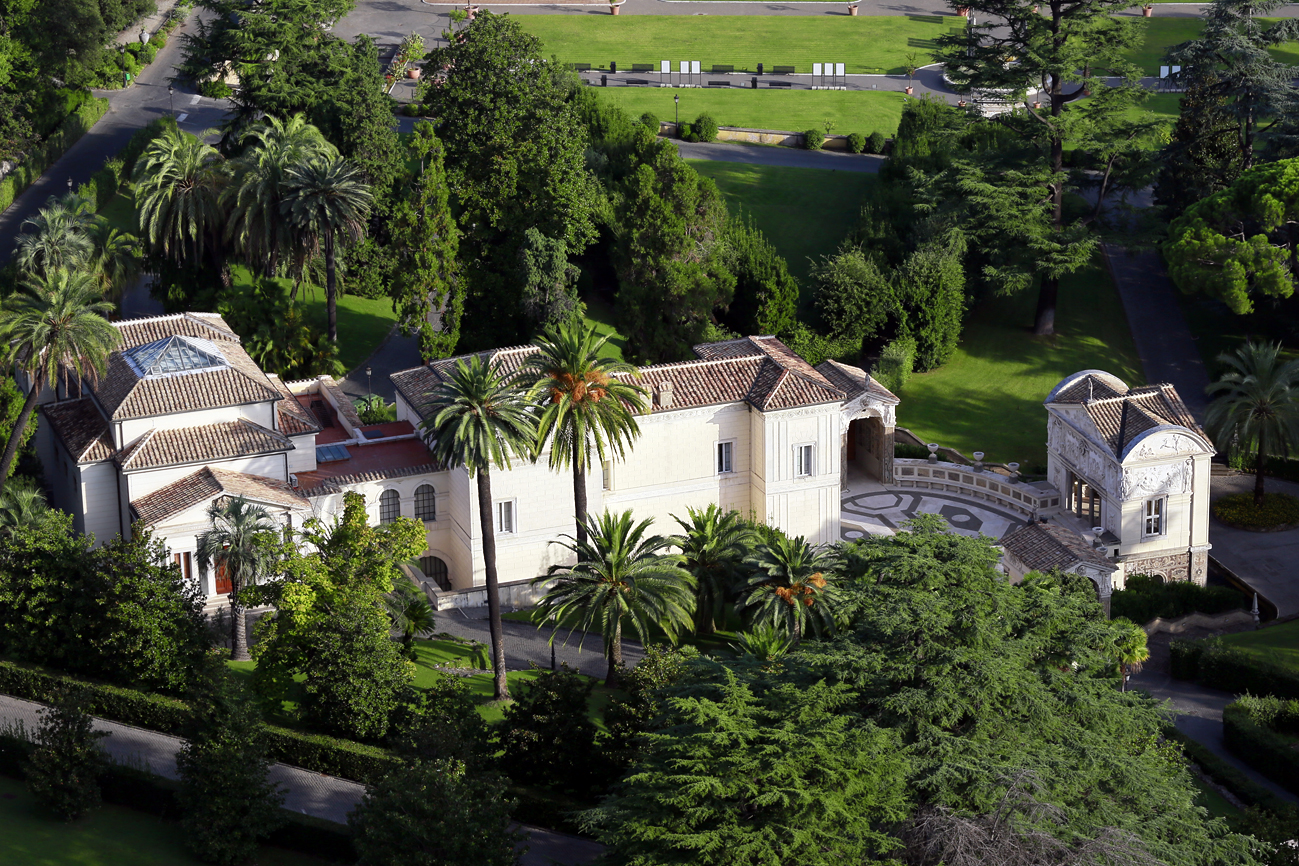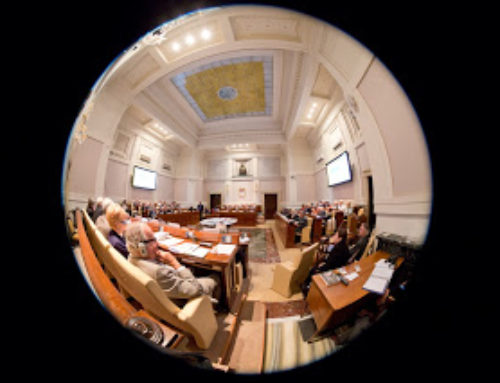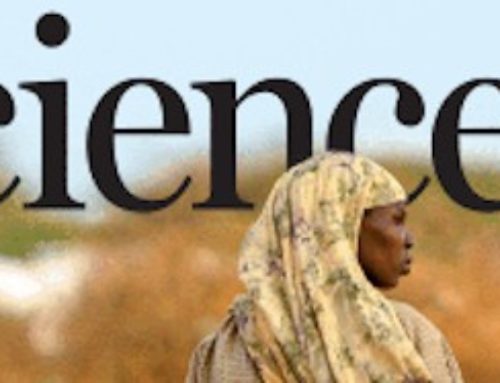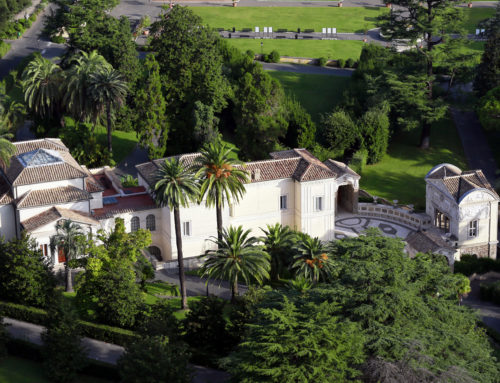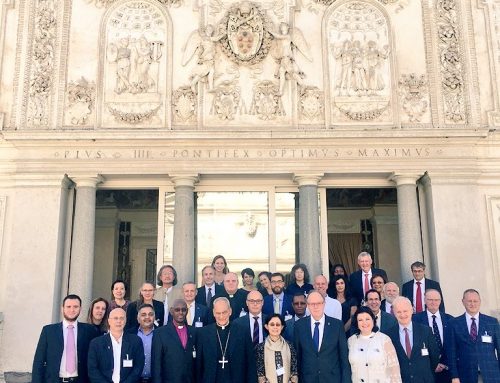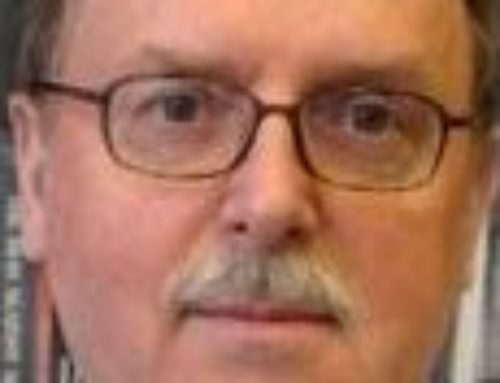Science and Survival – A focus on SARS-CoV-2, connections between large-scale risks for life on this planet and opportunities of science to address them
Plenary Session October 7-9, and 28, 2020
Worldviews, perspectives and science
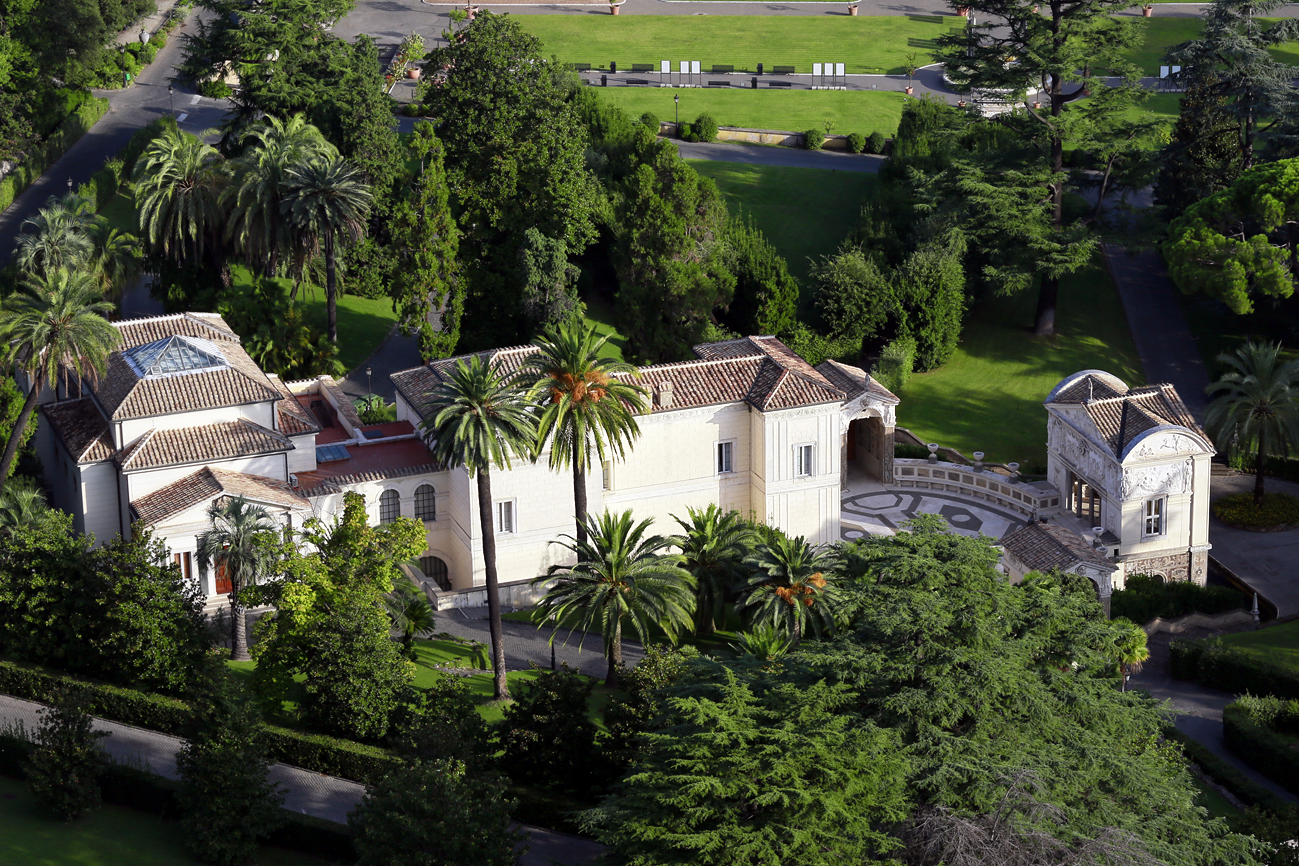
1. The 2020 PAS Plenary Session was guided by the idea that the role of science is critical for the survival of humanity – in view of the SARS-CoV-2/COVID-19 crisis probably more so than ever. The conference also addressed interlinkages between health, large-scale risks for people, and planetary health, as well as opportunities of science to tackle and contribute to solving them. The 2020 Plenary builds on deliberations by the Pontifical Academy of Sciences earlier this year that led to a joint statement by the Pontifical Academy of Sciences and the Pontifical Academy of Social Sciences. A lot has been learned about the pandemic in the past year, and scientists need to share and systematically compare insights.
2. Scientific evidence has a strong impact on political decisions at a global scale. Examples are the prediction that a nuclear war would cause a nuclear winter; the discovery of the reasons for the ozone hole and the analysis of its deleterious effects on life by Mario Molina and Paul Crutzen; the discovery of the reasons for global warming and the predictions of its devastating effects; the quantification of the exponential rate of species extinction that jeopardizes the equilibrium of our biosphere. It is noteworthy that all of these problems are man-made and came into the world because of the inappropriate use of advances of science and technology.
3. The Pontifical Academy of Sciences was and is engaged in all these domains, attempting to scrutinize the evidence as thoroughly as possible and to derive evidence-based suggestions for ethical and responsible action. In the cited examples scientists took the initiative, trying to alert politicians and the public at large. The launch of the Sustainable Development Goals by the United Nations is a consequence of scientific insight. “The eruption of the pandemic, within the broader context of global warming, the ecological crisis and the dramatic loss of biodiversity, represents a summons to our human family to rethink its course, to repent and to undertake an ecological conversion (cf. Laudato Si’, 216-221)”, as Pope Francis pointed out in his message to our Academy (Oct. 7, 2020).
4. The COVID-19 pandemic has led to an inversion of the relation between science and politics. Politicians actively seek scientific advice in order to take educated measures, and, with a few deplorable exceptions, this is happening worldwide and across all cultures. The likely reason is that the present crisis is not perceived as man-made, but as a plague of cryptic origin. This induces strong feelings of uncertainty, insecurity and helplessness. Science is considered a source of security and hope, not only by politicians but also by the public at large, and politicians are more willing to rely on scientific evidence to adjust their actions.
5. COVID-19 has changed the world. Life has become very complicated and society has suffered a lot, not only due to the suffering brought about by the disease and, more importantly, by its mortality but also due to the economic and emotional impacts in most of our communities, particularly the poor and unprotected. Many people have accepted the call of duty to deal with this situation, such as our medical care providers and many other essential professions. The entire world is eagerly waiting for the scientific community to come up with approaches that curtail the spreading of viral infections, development of vaccines, therapies and prevention approaches to handle this pandemic. Science has an enormous responsibility.
Strengthening Science for Survival
6. We note that science during a pandemic is different in terms of opportunities and challenges. Science that matters in the short term has to have a higher priority than usual, but actionable science needs careful ethical consideration. Science must also consider and explore strategic, long-term consequences. Strengthening strategic science in the midst of a crisis is critical for evidence-informed preventive approaches.
7. Strengthening basic research enhances the capacity to detect, respond, and ultimately prevent or, at least, mitigate catastrophes such as pandemics. An important research area is understanding the root causes and prevention of zoonotic diseases, i.e. infectious diseases caused by bacteria, viruses, or parasites that spread from animals to humans. Food-related animal production systems may need reshaping to reduce the risks of zoonotic breeding grounds.
8. Research needs to accompany policy measures in the pandemic to facilitate learning. Learning from countries that cope better with the pandemic than comparable countries in terms of sound responses by policy, health systems, citizens, and science is an important area of research. Behavioural science is relevant in this context, since we need to know more about the psychological foundations of human behaviour in situations of collective stress, in order to decide on appropriate governance strategies.
9. Research on optimal management of the pandemic with public health, citizen information and contact reduction approaches – accompanied by health services – must be prioritized in view of the time it takes to develop and test vaccines. Innovations in diagnostics and testing and assessing alternatives under relevant circumstances is an urgent field of research.
10. We note the progress in vaccine trials and emphasize that established standards of responsible vaccine testing must not be circumvented. Vaccines must not only be developed but also produced and shared in equitable ways. Health systems need to be much more inclusive of the poor and low-income countries. When vaccines become available, equal access regardless of income must be assured.
11. While the current focus is on the vaccine and its application strategy, other diseases are quietly growing. Scientific and technological advances must also focus on providing new ways of dealing with old problems in an easier and more viable way. While we must address the acute problems of the pandemic, we should also take a long-term view beyond the pandemic, building fairer and more resilient health systems serving all in society.
12. Science in many disciplines must work together with medical sciences to address the COVID-19 crisis. For example, physical scientists can be involved in theoretical models, data analysis and developing technologies for new therapies. Social scientists can investigate social impacts of the disease and propose policies and mechanisms for the betterment of everybody’s life. There is no question about serious psychological impacts, and as these are questions of life, survival, and death, philosophy is important here too. Philosophy and the humanities need to engage in world health issues, and must figure more prominently on curricula of universities and colleges, so that our future scientists are able to make morally and ethically responsible decisions on world health problems, and that our politicians will value scientists in guiding them through future world health problems. There is a need for every scientist to become engaged and be part of the progress towards solutions. None of us can stay on the sidelines.
13. Artificial intelligence (AI) plays a growing role as a decision support technology in confronting the coronavirus. We have seen useful contributions from AI in prevention, early diagnostics and treatment control, contact tracing, pandemic trend prediction, drug and vaccine development and, eventually, for deployment and long-term monitoring. Trustworthy AI solutions seek alignment with ethical goals. Issues such as fairness, transparency, privacy, education, and security come into focus. Collaboration on AI tools, as well as quality assurance and sharing, needs attention due to rapidly increasing data volumes in this domain. It is truly a global endeavour.
14. To assure that science is heard, it is indispensable that science is trusted and explained well. This, however, can only be achieved if science acknowledges transparently that erring is part of the scientific endeavour. On the one hand, the speed with which the pandemic spreads and takes lives requires early publication of scientific results, even when not yet confirmed by others. On the other, the public is overwhelmed with such early-stage publications and cannot easily distinguish between fringe opinions not shared by many scientists and broad consensus that has the potential to enter textbooks. In this respect, Academies have a responsibility to distil scientific news, extracting what will last and distinguishing it from information that has no chance to stay. We must not make false promises nor declare that, in scientific terms, there is something like absolute truth. Emphasizing this will increase uncertainty and insecurity even further – and therefore it is imperative to prepare citizens to be able to endure uncertainty. This is an important attribute of resilience even in “normal” times, but the pandemic with its unpredictability emphasizes even more the need to cultivate the ability to tolerate uncertainty. It is the best antidote against ideologies, radical denial, simplistic convictions and false beliefs.
Political, societal implications and ethics
15. COVID-19 adversely impacts especially the poor. This must be addressed by governments and all decision makers. As Pope Francis mentioned in his message to our Academy on the occasion of the Plenary Session (Oct. 7, 2020), “lt has an enormous impact on education. In many parts of the world, great numbers of children are unable to return to school, and this situation runs the risk of an increase in child labour, exploitation, abuse and malnutrition”. Solidarity is a key theme in the Encyclical Letter Fratelli Tutti.
16. Risk patterns across population groups are increasingly better understood. Public health policy and clinical systems need to factor in these risk patterns to achieve fairness in the coping and prevention strategies of the pandemic. Health systems need to be strengthened in all countries. Responsibility, however, also rests with the general public and all of us in preventing the spread of the virus by complying with recommendations such as wearing face masks, keeping hands clean, physically distancing, etc.
17. Education has taken very worrying turns due to the pandemic. Almost 200 countries have temporarily closed schools and almost 1.5 billion students (children and adolescents) have been excluded from schooling at some time. The long-term impact of COVID-19 on young children and on people with developmental and cognitive disabilities creates deep anxieties and emotions, which may mark their future. Special care should be taken to explain to them the rationale and science of the pandemic. Great effort on the part of all is being made to transmit a baseline level of information through remote (digital) channels, but this is not working for the poor and marginalized. In some countries, remote learning is not an option for children, simply because they have no internet at home. Connectivity under these circumstances should be considered a human right. Social inequality will grow due to this educational gap. Recovery programs are needed and the intensification of digital education opportunities should be explored, adjusted to the local context.
18. Governments, public institutions, science communities, and the media (incl. social media) often fail to ensure responsible, transparent, and timely communication, which is crucial for appropriate action. International organizations like WHO, but also academies of sciences, need to be supported in their communication efforts. Broad-based policy action in the field of public health is essential in all countries to protect poor and vulnerable people from the virus. Scientists need to be well trained in the necessary skills to engage in sound communication with society at large and with policy makers.
19. A lesson the pandemic teaches us is that – without solidarity – freedom and equality are just empty words (Pope Francis). Global problems such as pandemics, climate change and biodiversity loss demand global cooperative responses. We must take into account the relationships between human activities, global ecology and livelihoods. The prevention and containment of pandemics is a global public good (Laudato Si’) and protecting it requires increased global coordination.
20. Sustainable pathways to manage existential threats like pandemics and climate change suggest recovering our spiritual perspectives. Under such existential stresses, when we do not know the solutions, we may remember to lament. Lamenting and reaching out to those who suffer is part of our calling in the Pontifical Academy of Sciences and as citizens. Believers invoke God to enlighten women and men of science to find pertinent solutions to the problems that afflict us. It matters more for scientists, policy makers and faith-based institutions to work hand in hand under these stressful circumstances. Their goal should be helping to overcome growing divisiveness in societies.
Signed by
Joachim von Braun, President of the Pontifical Academy of Sciences (PAS), University of Bonn, Germany
Marcelo Sánchez Sorondo, Bishop Chancellor of the Pontifical Academies of Sciences (PAS) and Social Sciences (PASS), Vatican City
Dario Edoardo Viganò, Vice Chancellor of the Pontifical Academies of Sciences (PAS) and Social Sciences (PASS), Vatican City
Werner Arber, PAS Academician and Council Member, Former PAS President, Professor, Biozentrum, University of Basel, Nobel Laureate in Physiology, Switzerland
Vanderlei S. Bagnato, PAS Academician and Council Member, Professor, Department of Physics and Materials Science, University of São Paulo and the Institute of Physics of São Carlos, Brazil
Antonio Battro, PAS Academician, Emeritus Professor, Academia Nacional de Educación, Buenos Aires, Argentina
Armin B. Cremers, Professor B-IT Emeritus Research Group, University of Bonn, Germany
Edward M. De Robertis, PAS Academician, Professor, Howard Hughes Medical Institute, University of California, Los Angeles
Francis L. Delmonico, PAS Academician and Council Member, Senior Surgeon, Massachusetts General Hospital; Professor of Surgery, Part-Time, Harvard Medical School; Chief Medical Officer, New England Organ Bank
Elaine Fuchs, PAS Academician, Investigator of the Howard Hughes Medical Institute and Rebecca C. Lancefield Professor of the Rockefeller University, New York
Fabiola Gianotti, PAS Academician, CERN Director-General, Geneva
Mohamed H.A. Hassan, PAS Academician, Professor of Mathematics, Khartoum University; President, Sudanese National Academy of Sciences (SNAS)
Jürgen A. Knoblich, PAS Academician, Professor, Institute of Molecular Biotechnology of the Austrian Academy of Sciences, Vienna
Pierre Léna, PAS Academician, Professor Emeritus, Université Paris Diderot, Paris
Mohlopheni Jackson Marakalala, African Health Research Institute, University College London and University of Cape Town, South Africa
Jürgen Mittelstraß, PAS Academician, Emeritus Professor, Philosophy of Science, University of Konstanz, Germany
Tolullah Oni, Clinical Senior Research Associate & Joint Lead, Global Diet and Activity Research Group and Network MRC Epidemiology Unit, Fellow, Wolfson College, University of Cambridge
José N. Onuchic, PAS Academician, Professor, Department of Physics, Rice University, Houston
Veerabhadran Ramanathan, PAS Academician and Council Member, Professor, Scripps Institution of Oceanography, University of California at San Diego, USA
Martin J. Rees, PAS Academician and Council Member, Emeritus Professor of Cosmology and Astrophysics, University of Cambridge, Astronomer Royal, UK
Wolf J. Singer, PAS Academician and Council Member, Professor of Physiology at the Goethe University Frankfurt, and Max Planck Institute for Brain Research, Frankfurt, Germany
Rafael Vicuña, PAS Academician, Professor, Pontificia Universidad Católica de Chile, Santiago
Maryanne Wolf, PAS Academician, Director, Center for Dyslexia, Diverse Learners, and Social Justice, Visiting Professor, Graduate School of Education and Information Studies, University of California, Los Angeles

